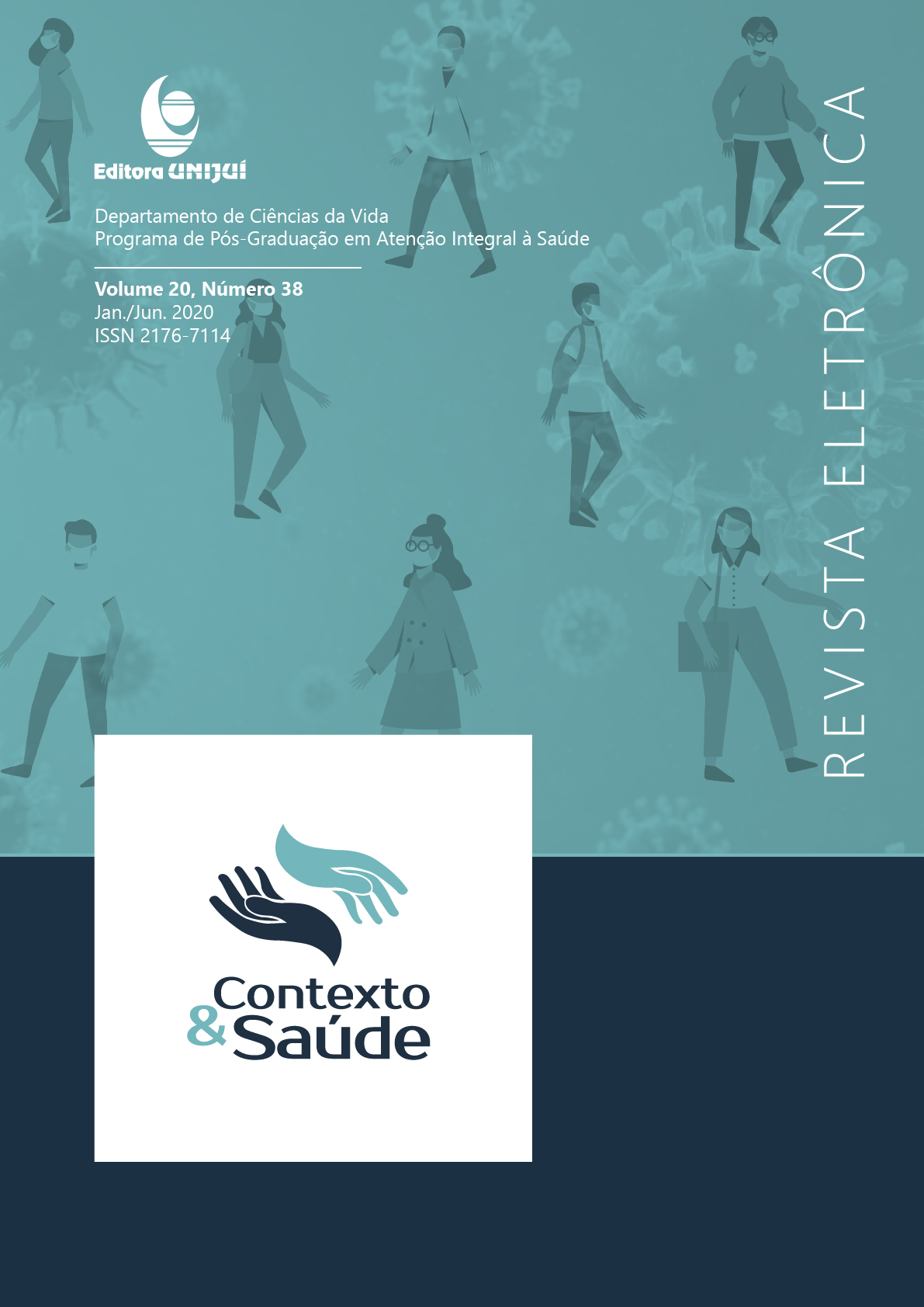EFFECT OF A THERMOGENIC SUPPLEMENTATION ON POST AEROBIC EXERCISE HEMODYNAMIC RESPONSES IN HEALTHY YOUNG MEN
DOI:
https://doi.org/10.21527/2176-7114.2020.38.155-162Palabras clave:
Thermogenic, Running, post-exercise hypotensionResumen
Introduction: The use of food supplements with esthetic or performance-enhancing goals has been largely investigated. Thermogenics are supplements that increase energy expenditure through thermogenesis and are widely consumed by individuals seeking to improve body composition and exercise performance. Objective: To evaluate the effects of a commercially available thermogenic supplement on post-exercise blood pressure responses. Materials and Methods: Twenty-seven healthy thermogenic supplements users participated in the study. Nine were assigned in the control group (21.67 ± 1.87 years), nine in the thermogenic group (24.00 ± 4.18), and nine in the placebo group (23.67 ± 3.04). The volunteers performed a treadmill aerobic exercise session for 60 minutes at 65 to 85% max heart rate. The hemodynamic variables were measured at rest and during 60 minutes in the post-exercise recovery. The normality of the data was evaluated using the Shapiro-Wilk test. Baseline momentum and post-exercise recovery were analyzed using the two-way ANOVA test (group versus time factors), with Bonferroni post-hoc test. The level of statistical significance was set at p <0.05. Results: The thermogenic supplement did not significantly compromise post-exercise hypotension when compared to the other groups. However, thermogenic supplementation increased the blood pressure in >5 mmHg, which reportedly plays an important role in cardiovascular diseases. Conclusion: The use of the thermogenic Lipo 6 Black Ultra Concentre Nutrex ® did not alter PEH in healthy youngsters. However, since an increase in the blood pressure was observed, this supplementation must be administered with caution.
Descargas
Publicado
Cómo citar
Número
Sección
Licencia
Ao publicar na Revista Contexto & Saúde, os autores concordam com os seguintes termos:
Os trabalhos seguem a licença Creative Commons Atribuição 4.0 Internacional (CC BY 4.0), que permite:
Compartilhar — copiar e redistribuir o material em qualquer meio ou formato;
Adaptar — remixar, transformar e criar a partir do material para qualquer fim, inclusive comercial.
Essas permissões são irrevogáveis, desde que respeitados os seguintes termos:
Atribuição — os autores devem ser devidamente creditados, com link para a licença e indicação de eventuais alterações realizadas.
Sem restrições adicionais — não podem ser aplicadas condições legais ou tecnológicas que restrinjam o uso permitido pela licença.
Avisos:
A licença não se aplica a elementos em domínio público ou cobertos por exceções legais.
A licença não garante todos os direitos necessários para usos específicos (ex.: direitos de imagem, privacidade ou morais).
A revista não se responsabiliza pelas opiniões expressas nos artigos, que são de exclusiva responsabilidade dos autores. O Editor, com o apoio do Comitê Editorial, reserva-se o direito de sugerir ou solicitar modificações quando necessário.
Somente serão aceitos artigos científicos originais, com resultados de pesquisas de interesse que não tenham sido publicados nem submetidos simultaneamente a outro periódico com o mesmo objetivo.
A menção a marcas comerciais ou produtos específicos destina-se apenas à identificação, sem qualquer vínculo promocional por parte dos autores ou da revista.
Contrato de Licença (para artigos publicados a partir de setembro/2025): Os autores mantém os direitos autorais sobre seu artigo, e concedem à Revista Contexto & Saúde o direito de primeira publicação.

